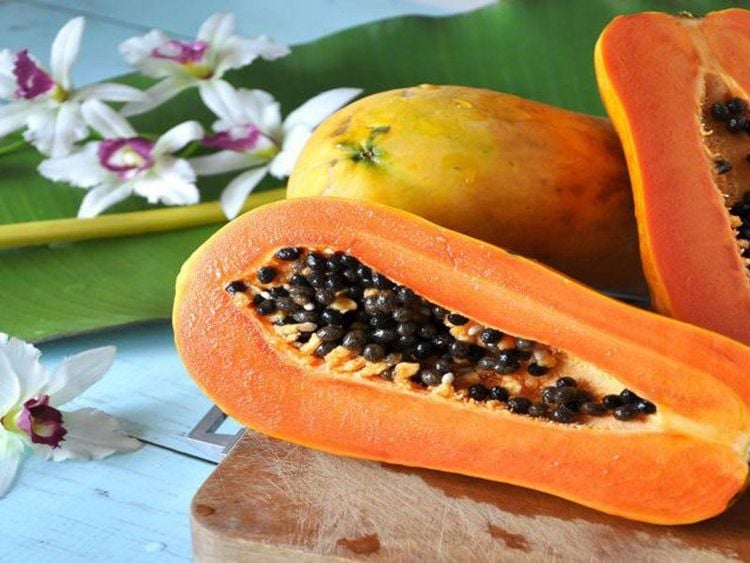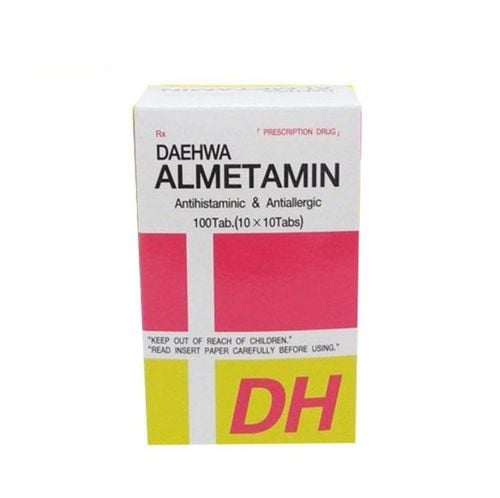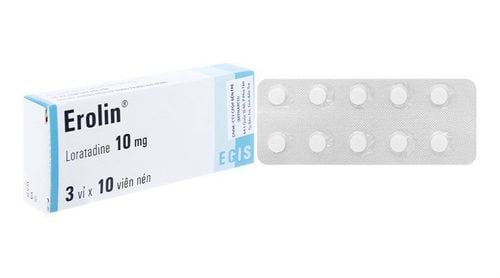1. The Relationship Between Papaya
Consumption and Pregnancy
Should pregnant women avoid eating papaya? The answer to this question can be both yes and no. Currently, there is still a lot of confusion surrounding papaya consumption during pregnancy. This is because ripe papaya is beneficial for pregnant women, while unripe papaya can be harmful.
- Ripe papaya (with a deep yellow skin) is considered a source of natural and healthy nutrients, including: beta-carotene, choline, fiber, folate, potassium, vitamins A, B, and C.
- However, unripe papaya (with green skin) is considered a source of substances like latex and papain.
2. Pregnant women should avoid consuming unripe papaya
Pregnant women should avoid unripe papaya due to the presence of latex, which can pose several health risks:
- The latex in unripe papaya can trigger uterine contractions, potentially leading to premature labor.
- Unripe papaya contains papain, a substance that the body may mistake for prostaglandin, a hormone sometimes used to induce labor. Papain can also weaken the membranes that support the fetus.
- Latex is a common allergen and can cause allergic reactions.

3. Health Benefits of Papaya
Is it safe to eat ripe papaya during pregnancy? While ripe papaya can provide essential nutrients for pregnant women, unripe papaya can be quite dangerous. Some expectant mothers continue to enjoy ripe papaya throughout their pregnancy. However, other pregnant women choose to eliminate all papaya or papaya-related foods from their diet until after childbirth, as there are plenty of other nutrient-rich foods to enjoy that ensure the safety of both mother and fetus during pregnancy.
If you are pregnant or planning to become pregnant, talk to your doctor about a healthy diet, including foods to avoid. However, scientific evidence has demonstrated several benefits of papaya, a tropical fruit that is extremely good for your health. Moreover, papaya is known to contain high levels of antioxidants that can reduce inflammation, fight disease, and help you look younger.
3.1. Papaya has antioxidant properties
Free radicals are reactive molecules produced during your body's metabolic processes. Free radicals can promote oxidative stress, which can lead to disease.
Antioxidants, including carotenoids found in papaya, can neutralize free radicals.
Research results on papaya compounds also note that fermented papaya can reduce oxidative stress in adults and those with prediabetes, mild hypothyroidism, and liver disease. Additionally, many researchers believe that an excess of free radicals in the brain is a significant factor in the development of Alzheimer's disease.
In one study, people with Alzheimer's disease who took fermented papaya extract for six months experienced a 40% reduction in biomarkers that indicate oxidative damage to DNA, which is also associated with aging and cancer.
Reducing oxidative stress due to papaya's lycopene content and its ability to remove excess iron, which is known to produce free radicals.
3.2. Papaya's Cancer-Fighting Compounds
Research into papaya's anti-cancer properties has shown that lycopene, found abundantly in this fruit, can significantly reduce the risk of cancer. This compound may also offer benefits to individuals undergoing cancer treatment. Papaya contains components that can combat cancer by reducing the number of free radicals in the body, which are known to contribute to cancer development.
Furthermore, papaya possesses unique qualities not found in other fruits. Among fruits and vegetables renowned for their antioxidant properties, papaya stands out as the only one demonstrating anti-cancer activity against breast cancer cells.
A study involving elderly individuals with inflammation and precancerous conditions of the stomach found that fermented papaya preparation reduced the harmful effects of oxidation. However, larger-scale studies are needed to solidify these findings.
3.3. Papaya's Heart Health Benefits
Incorporating papaya into your diet can enhance your cardiovascular health. Studies on the connection between diet and heart health have shown that fruits rich in lycopene and vitamin C can help prevent heart disease. The antioxidants present in papaya can protect the heart and enhance the protective effects of HDL cholesterol.
A study examining individuals with abnormal biochemical markers found that those who consumed fermented papaya supplements for 14 weeks experienced reduced inflammation and a more favorable ratio of LDL to HDL cholesterol compared to those taking a placebo. The improvement in this ratio is linked to a decreased risk of heart disease.

3.4. Papaya can combat inflammatory symptoms
Chronic inflammation is at the root of many diseases, and unhealthy food choices and lifestyles can fuel this process. Research on anti-inflammatory effects suggests that fruits and vegetables rich in antioxidants, like papaya, can help reduce signs of inflammation. A trial study on the anti-inflammatory effects of papaya found that men who increased their intake of fruits and vegetables high in carotenoids significantly reduced CRP, a specific marker of inflammation.
3.5. Papaya can help improve digestion
The enzyme papain in papaya can help break down proteins in the body, making them easier to digest. People in tropical regions have long used papaya as a remedy for constipation and other symptoms of irritable bowel syndrome (IBS). In a few studies, people who consumed papaya-based formulas for 40 days showed significant improvement in constipation and bloating. The seeds, leaves, and roots of papaya have also been shown to treat ulcers in both animals and humans.
3.6. Papaya can help protect the skin from damage
Papaya not only contributes to overall health but can also help keep your skin firm and youthful. Excessive free radical activity in the body is believed to be a major cause of wrinkles, sagging, and other skin damage associated with aging. The two compounds, vitamin C and lycopene, found in papayas, offer protective benefits for the skin and can help reduce these signs of aging.
A study testing the skin-protective effects of lycopene showed that supplementing with lycopene for 10-12 weeks reduced skin redness after sun exposure, a sign of skin damage. In another case, older women who consumed a blend of lycopene, vitamin C, and other antioxidants for 14 weeks experienced a significant and measurable reduction in the depth of facial wrinkles.
Papaya is rich in nutrients for the body. Antioxidants like lycopene in papaya can reduce the risk of many diseases, including those that tend to develop with age, such as heart disease and cancer. Papaya can also combat visible signs of aging, helping to keep your skin smooth and youthful
Please dial HOTLINE for more information or register for an appointment HERE. Download MyVinmec app to make appointments faster and to manage your bookings easily.
Reference source: healthline.com
To arrange an appointment, please call HOTLINE or make your reservation directly HERE. You may also download the MyVinmec app to schedule appointments faster and manage your reservations more conveniently.








